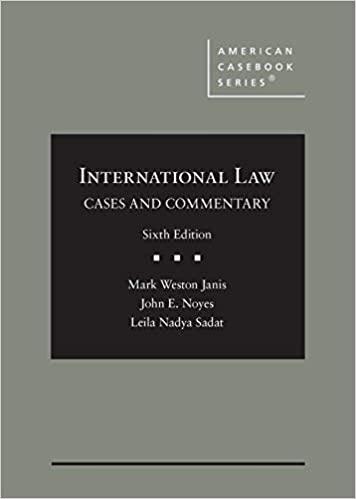Question
1.Principle: Jurisdiction: Decision-makers who exercise powers granted by statute (administrators) must stay within their legal authority, or jurisdiction. 2.Principle: Discretion: Administrators must exercise their judgment
1.Principle: Jurisdiction: Decision-makers who exercise powers granted by statute ("administrators") must stay within their legal authority, or jurisdiction.
2.Principle: Discretion: Administrators must exercise their judgment in a reasonable manner when they have discretion in making decisions.
3.Principle: Procedural Fairness: Administrators must follow fair procedures when making decisions that affect a person's rights or interests.
4.Principle: Redelegation: A person to whom the legislature has delegated authority to carry out a function may not delegate it to someone else.
5.Principle: Subordination: To be valid, subordinate (or delegated) legislation must conform to the statute under which it is passed.
6.Principle: Judicial Review: If decision-makers violate any of the above principles, the superior courts have an inherent power to intervene to rectify this failure.
Kindly give me an example for each of the principles, thank you
Step by Step Solution
There are 3 Steps involved in it
Step: 1

Get Instant Access to Expert-Tailored Solutions
See step-by-step solutions with expert insights and AI powered tools for academic success
Step: 2

Step: 3

Ace Your Homework with AI
Get the answers you need in no time with our AI-driven, step-by-step assistance
Get Started


